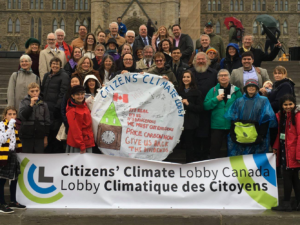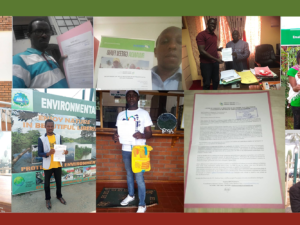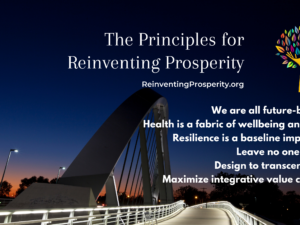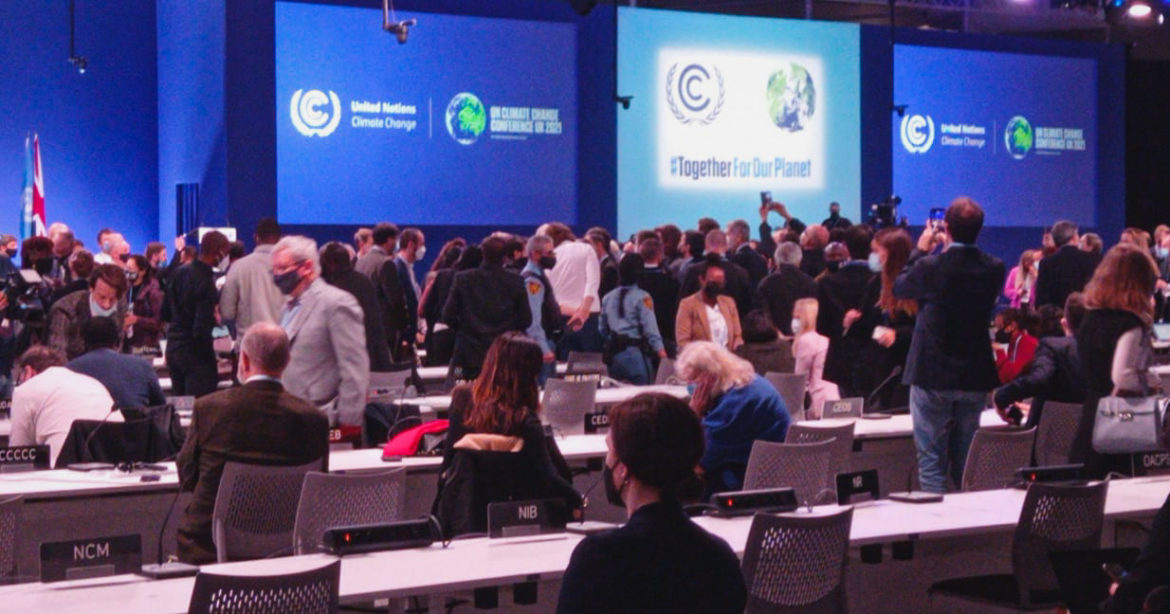
The COP26 was tasked, during negotiations for the Paris Agreement itself, with providing a clear moment for upgrading global ambition toward stopping the advance of dangerous climate change. We must all recognize that negotiations themselves do not change the geophysical reality, but they can create conditions where the actions that follow do provide meaningful mitigation and protection.
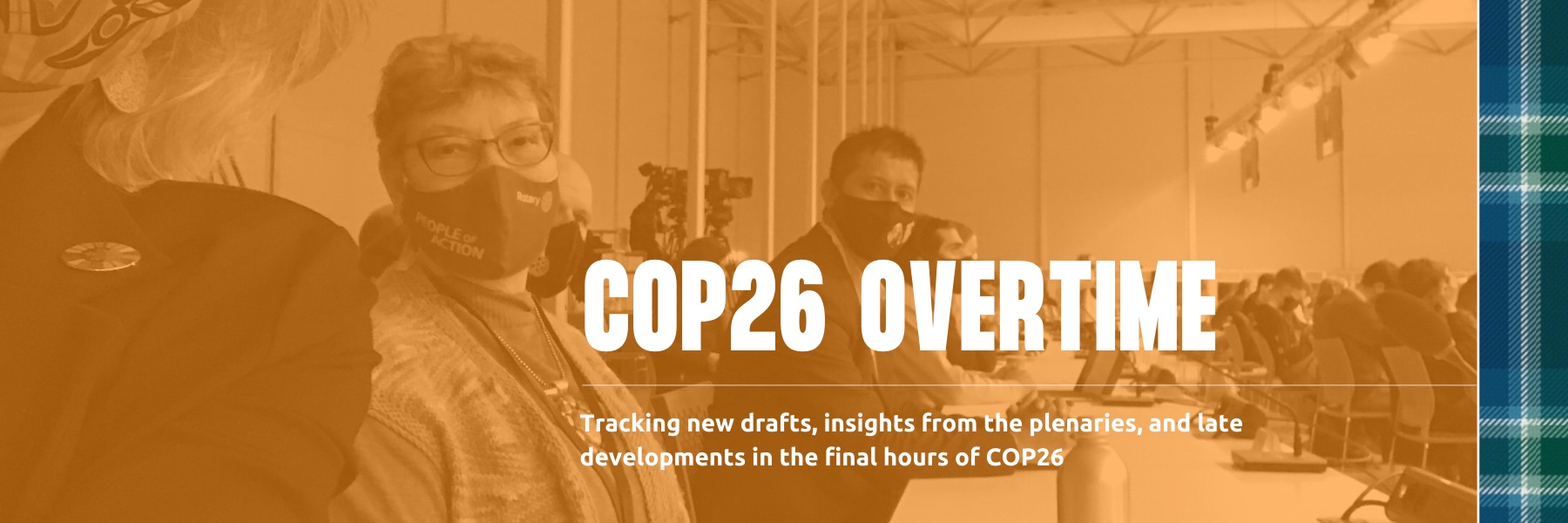
Our team closely tracked the last-minute negotiations, in the plenary and around the world. Observers do more than observe; they enhance the process.
Four major areas of ambition required immediate attention from world leaders, and from negotiators gathered in Glasgow:
- Significant increase in ambition and acceleration of action to mitigate human-caused climate change.
- Significant increase in overall commitment of finance to climate action and adaptation.
- Significant increase in support from developed countries to developing countries for investment in adaptation to climate impacts, to build resilience and reduce risk.
- Significant expansion of efforts to mainstream zero emissions priorities in finance, economic development, and trade.
The Glasgow Climate Pact achieves real progress in all four of these areas, though it required difficult compromise from most countries and constituencies, and there is much more to do. First, the compromise: At the last hour, two countries withheld consensus unless language regarding the global phase out of coal and fossil fuel subsidies was changed.

The last day of negotiations at COP26 saw many negotiators huddling together to discuss whether this morning’s draft texts could be approved.
The agreed change was to “phase down” both.
- Though this is historic, and the first time such a commitment is agreed by the 196 nations of the COP, it was a disappointment to many.
- Even the COP26 President Alok Sharma rightly paused with emotion on recognizing that disappointment.
- We want to emphasize the historic accomplishment of this commitment, and call for all nations to work together to ensure the steady, rapid, and decisive phase out of both coal-fired energy production and all fossil fuel subsidies.

Article 6 of the Paris Agreement outlines the Cooperative Implementation agenda. It must be used to steadily accelerate overall decarbonization.
In the area of international cooperation to achieve overall mitigation of global emissions, agreed rules for Paris Agreement Article 6, paragraph 2 (cooperative approaches), paragraph 4 (establishing a mechanism), and paragraph 8 (non-market approaches), enhance the capability of countries to consolidate this kind of rapid emissions reduction and realignment of subsidies.
- We urge all nations to work toward tightening of monitoring, verification, accounting, and accelerating decarbonization.
- We call for alignment of non-market approaches with a strict commitment to steady and accelerating decarbonization.
- We ask that Article 6 activities begin to prioritize direct investment in nature, and overall emissions reduction.
Citizens’ Climate International holds the view that all nations have a fundamental duty to their people, to:
- End fossil fuel subsidies;
- Put a decisive and transformational price on pollution;
- Foster inclusive clean development;
- Mobilize finance to achieve at least 50% overall mitigation of global emissions by 2030;
- Design and secure climate-smart sustainable food systems;
- Invest in ways that restore ecosystems and biodiversity;
- Defend and uphold human rights in all areas;
- Welcome active participation by non-Party stakeholders in both the design and implementation of climate solutions.
The Glasgow Work Programme on Action for Climate Empowerment ensures ongoing work toward enhanced climate civics and public information, education, and training. While some of our own aims for ACE are not explicitly included, we welcome the Work Programme as a foundation for detailed formal and informal ACE activities going forward, including in the Action Plan to be agreed at the next meeting of the Subsidiary Bodies in Bonn.

The COP26 featured an unprecedented scope, scale, ambition, and projected place of action from outside of government. The work of the Marrakech Partnership and the High-Level Climate Champions must continue at this level, to make a safe climate future possible.
We recognize the importance of the Glasgow-Sharm el-Sheikh Work Programme on the Global Goal on Adaptation (GGA).
- Our own Reinventing Prosperity consultations led to the insight that resilience must be a baseline imperative, not a best-case preparedness outcome.
- We also recognize the right of all people to expect a livable climate future, and recommend that the GGA aim for a world in which this right is honored and upheld.
- The offer by the Maldives to host a workshop on the science-policy interface for effective implementation of the Work Programme aligns with our ACE4Ambition program for science activation through local climate civics.
- We will aim to bring stakeholders’ voices into the acceleration of adaptation action and to ensure the transparent and resilience-building value of adaptation finance.
We also note the powerful intervention from the Maldives in the stocktaking plenary:
We have 98 months to halve global emissions. The difference between 1.5 and 2 degrees is a death sentence for us.
We need more than conversation about Loss and Damage. We need a funding facility to ensure loss and damage compensation is delivered, both for reasons of basic fairness, and so all nations can address this planetary challenge on the basis of enhanced capability.
As the Secretary-General notes in his review of “building blocks for progress” achieved at COP26:
- Expanding financial support for vulnerable countries, catalyzing mainstream finance, and recognizing the need to strengthen support for vulnerable countries suffering from irreparable climate damage, get us closer to a formal global decision to work toward climate resilience as a core concern.
- It is also historic that the COP26 calls on International Financial Institutions to consider climate vulnerabilities in concessional financial and other forms of support, including Special Drawing Rights.
The Glasgow Climate Pact sets the stage for detailed negotiation on specific actions in the next meetings of the Subsidiary Bodies, and to direct policy, investment, development, and local capability, to achieve sustainable development that builds health and resilience for people and for natural systems, including the climate system. For it to do that, we need real, measurable, accountable, and cooperative action, to move all nations from deliberation to delivery.
- To facilitate the role of mainstream finance in driving this measurable, accountable cooperative action, we call for detailed work on the complex integration of Earth science data into financial data systems.
- Such integrative data systems should reveal the multi-system resilience value of specific spending and investment decisions.
- We see this as a critical step for ensuring emissions reductions are early, pervasive, and accelerating, while investment in nature and in climate-smart food systems steadily expands.
- We look forward to detailing the benefits of food and water resilience to overall climate action ahead of the COP27.
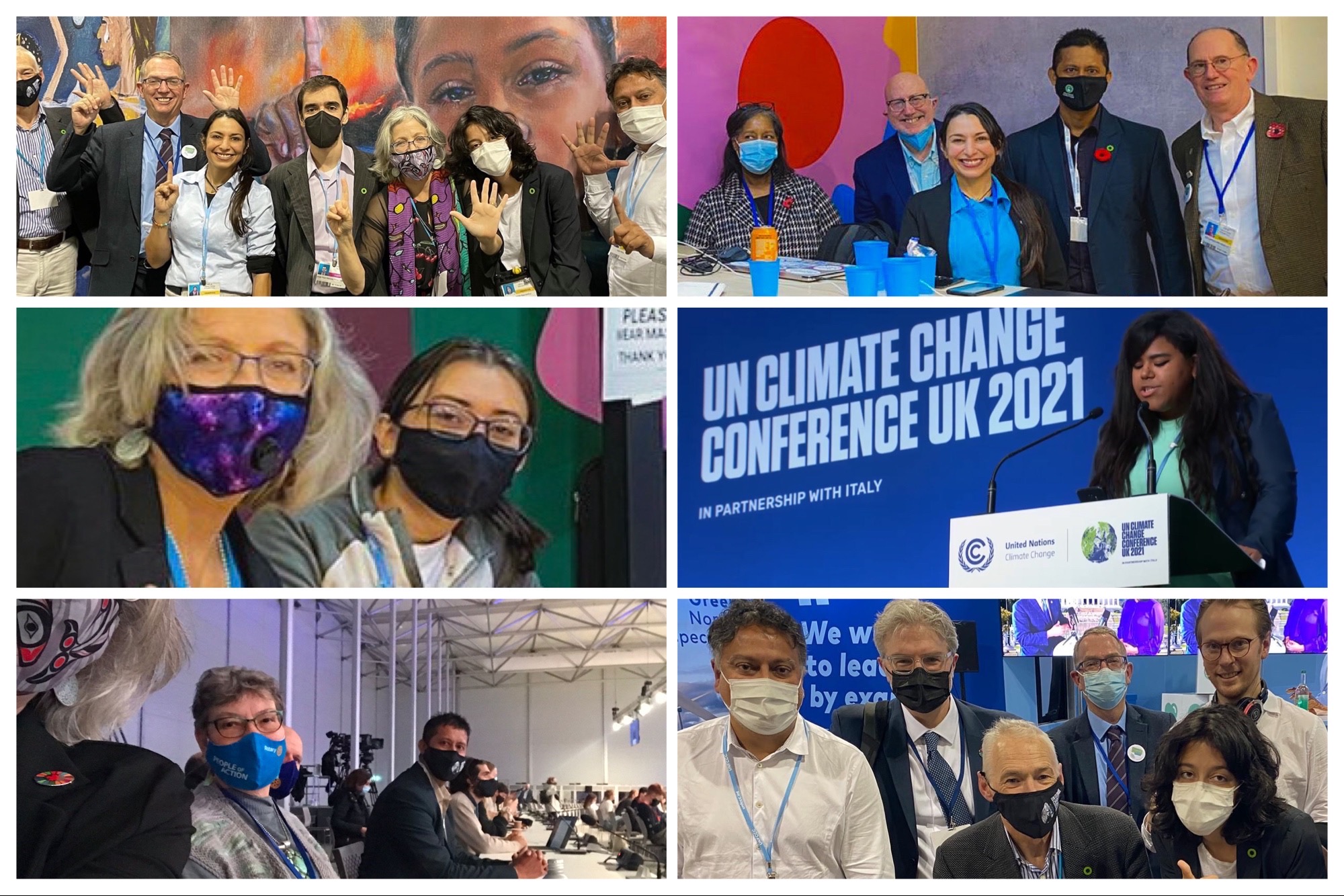
The Citizens’ Climate delegation at COP26 included 23 delegates during the two weeks, and a wider group of allies working with us in Glasgow and remotely.
We are grateful to the Chilean COP25 Presidency and the UK COP26 Presidency, and to the UNFCCC Secretariat, for coordinating and facilitating this process, and for welcoming the largest ever Citizens’ Climate delegation to the COP.
- The role of observers in this process is not limited to keeping an eye on things. Observers play a structural and dynamic role in ensuring the overall process moves in an informed and collaborative way toward higher ambition.
- Understanding that COVID safety measures played a role in the severe access restrictions experienced by observers at this COP, we look forward to supporting a much more inclusive and participatory process, going forward.
The Glasgow Pact does not yet guarantee a 1.5ºC world. Indeed, no document can do that. But we do see a solid foundation for enhanced ambition and action going forward, and we commit to work in solidarity with those nations whose very existence is threatened by global heating above 1.5ºC.
We must succeed together. Failure is not an option.
For inquiries about the CCI perspective on any of the above or the wider implications of COP26, email COP26(at)citizensclimateintl(dot)org
Additional resources
Read about CCI aims and activities around COP26:
- CCI COP26 Agenda Brief
- Reinventing Prosperity 1 Year Report
- The People’s Pavilion
- Aims for ACE Work Programme
COP26 resources:
- For detailed news about each day of formal sessions at the COP26, visit the Earth Negotiations Bulletin by IISD.
- For official COP26 negotiations documents, visit the UNFCCC Glasgow Conference documents section.
- To track climate action from non-state actors, including investors, industry, and municipalities, follow the Race to Zero.



